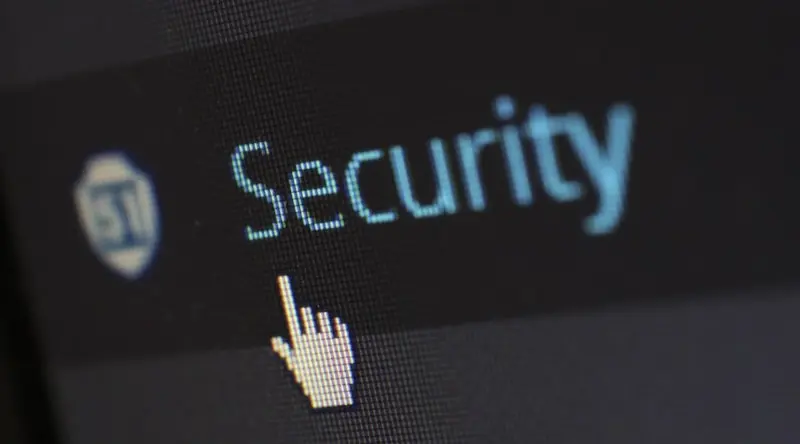settings
children
With Famly since
When you think ‘cyber security,’ you probably don’t think early education.
And that’s the problem.
For most of us, cyber security might seem like the realm of Hollywood, or top-secret spies. Could you imagine James Bond on assignment at Playful Monkeys Preschool? I bet he’s terrible with children.
But when more and more of our lives involve a phone, laptop or tablet, we’ve all got to think twice about how we protect the data that goes through those devices. In your Early Years setting, you’re working with sensitive information like parents’ payment details, children’s medical records, and all sorts of private correspondences.
That’s where cyber security comes into play.
Last month, the UK’s National Cyber Security Centre (NCSC) published their first-ever guidelines for cyber security within the Early Years sector. It’s the first time that a government has ever published such guidance specifically for the Early Years — so today, we’re going to talk about why it’s coming out now, and what it means for you and your daily practice in early education.

Why does cyber security matter for the Early Years sector?
When you stop to think about it, the day-to-day operations of your Early Years setting generate quite a bit of sensitive data. So much happens through a tablet, computer or smartphone, and just about everything you do — from collecting tuition payments to messaging a team member — gets documented on your devices.
Some of these digital receipts are pretty boring and commonplace. But some of them can be very sensitive, so we’ve got to take steps to keep that data protected.
Examples of these sensitive digital records might include:
- Parent’s addresses, contact information and credit card details
- Children’s immunization and medical records
- Photos and videos of the children at your setting
- Your payroll information, and your staff’s banking details
- Private correspondences between you, your team and your families
In a more extreme scenario, there’s a chance that some cyber criminal might steal this data and hold it for ransom. But keeping these digital records safe is bigger than that. If you lost some of this information, it might make it impossible to run your setting like normal. Or, losing other details might jeopardize the trust of the families in your care.
It’s not so much that you as an Early Years practitioner are at particular risk. Rather, as the NCSC explains, it’s that pretty much everybody could stand to be safer about their data.
“Regardless of the size and nature of your setting, the information that you hold is of value to a criminal. And although they may not target your setting directly, it's all too easy to be damaged by scam emails that cyber criminals send out indiscriminately to millions of businesses,” the NCSC writes in their guidance document.
That’s why we’ve got to be proactive about cyber security, and think about all the ways we can keep ourselves covered.

Cyber security is more than just thwarting hackers
Before we get all wound up about shadowy criminals and digital crimes, it’s worth noting that there are a lot more everyday considerations to cyber security, too.
In a broader sense, cyber security is just about keeping your data safe. Short of a hacker attack, any number of things could happen that might cause sensitive data to fall into the wrong hands, or cause you to lose information you need to run your child care setting.
Some examples of these more commonplace cyber security concerns might include:
- Losing a computer or tablet to water damage, or simply dropping it
- Physical theft of mobile phones, tablets or computers
- Accidentally downloading a harmful virus, even if it wasn’t specifically targeting your setting
Avoiding these threats comes down to being safe about how we store and secure our data, and being clever and cautious about avoiding things like email phishing scams.
If you’re running your child care setting without some sort of management software, it’s on you to ensure you’re handling your data safely and securely. This means protecting any sensitive data behind passwords, making regular backups of your digital records, and following your applicable personal privacy laws.
But child care management systems like Famly will take care of these steps for you. If you’d like to learn more about how Famly takes a lot of the guesswork out of cyber security, you can check out our security and privacy page right here.

The big ideas
The National Cyber Security Centre’s best advice for better cyber security in early education
As the National Cyber Security Centre emphasizes, it’s worth taking a moment to reflect on your cyber security measures at your own Early Years setting, even if you feel you’re not at risk.
Just like you check to make sure your smoke alarms are in working order, it’s just another safety precaution you should take. Their guidance aims to reduce your likelihood of falling victim to cyber crimes, and recovering more quickly in the case of a serious data loss at your setting.
So what does the UK’s National Cyber Security Centre recommend you approach cyber security in early education? Let’s take a quick look at their four key pieces of advice, and how you can use them in your own setting.
If you’d like, you can read the NCSC’s full advice, or you can download a PDF infographic.
- Make sure you back up all your important data. What information or records are absolutely critical to running your setting? Make a list. Then, make regular backups of that data on an external hard drive, or by using a protected cloud storage service.
- Use passwords on all the digital devices at your setting. Switch on password protection (or other 'sign-in' options) Make sure that the devices in your setting (so laptops, PCs and tablets) require a password when you switch them on. This helps ensure that nobody can get access to all of your sensitive data without your permission.
- Keep your devices’ security measures up to date. Often, software updates include new security measures that you won’t want to miss. You should enable ‘automatic updates’ on your devices, as well as for any apps and antivirus software you use on a regular basis.
- Watch out for fishy emails. Does that email seem pushy or threatening, or does it ask you to download something unfamiliar? If it smells fishy, trust your gut. You can read more on avoiding email phishing scams.
Top tips from Alphabet House
Get top tips from a setting just like yours. Hear from Alphabet House on why and how they use Famly - and why they’ve never looked back.
Read their story










